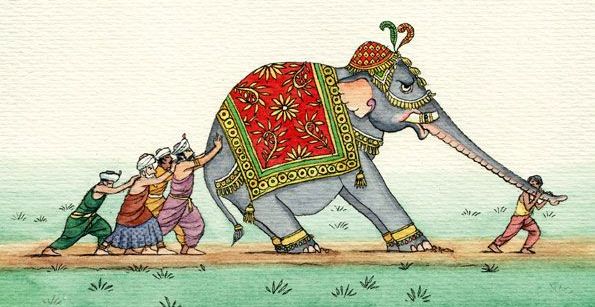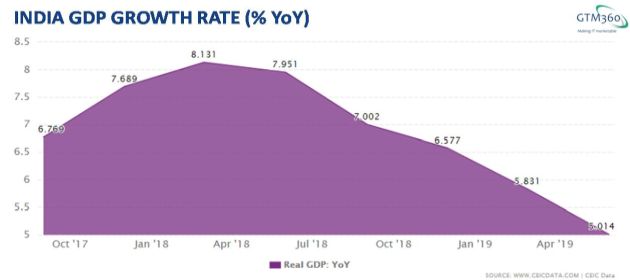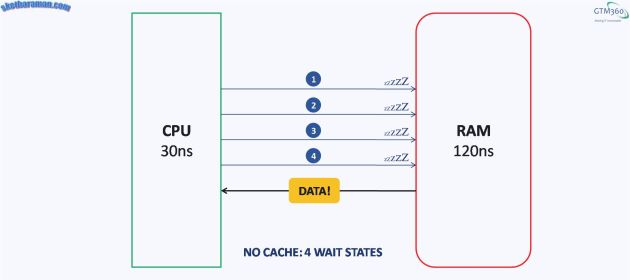With a steady fall in GDP growth rate during the last five quarters, there’s a near unanimous verdict that the Indian economy is going through a slowdown.
Most experts agree that the fundamental cause of the slowdown is insufficient consumption.
I agree with both views.
But I differ about the reasons advanced to explain the current state of affairs: It’s NOT lack of government stimulus, GST implementation snafus, and the other usual suspects.
In my opinion, the headline reason for the slowdown is an across-the-board deterioration in selling quality.
Back in the socialist days of India, you required a license to start and run any business. There were limited manufacturers of anything. There was an acute shortage of goods. There was a waiting list of six months for a scooter and five years for a landline connection.
While I never stood in a long line to buy the proverbial loaf of bread à la labor paradise USSR, I do remember traveling 20 kilometers to buy a bag of rice and standing in a line for 45 minutes to buy milk in Bombay.
Whatever was manufactured got sold immediately. Marketing and Advertising had limited roles. Sales was there to take orders. Consumption was largely restricted to basic needs like food, clothing, housing, transport, and so on.
 Then came the liberalization of the early 1990s. The Indian government freed several sectors from the onerous licensing requirements with the goal of making the economy more market-driven and expanding the role of private and foreign investment. (I also view liberalization as a loud-and-clear expression of the government’s wish to liberate itself from its previous role of being the sole driver of the economy, but I digress).
Then came the liberalization of the early 1990s. The Indian government freed several sectors from the onerous licensing requirements with the goal of making the economy more market-driven and expanding the role of private and foreign investment. (I also view liberalization as a loud-and-clear expression of the government’s wish to liberate itself from its previous role of being the sole driver of the economy, but I digress).
India took the first steps towards embracing free market capitalism.
A huge population of nearly a billion people presented a huge pent-up market. Tons of companies, both domestic and multinational, entered the Indian market to produce a wide range of goods and services. The economy took off. Very soon, the GDP growth rate nearly trebled from the so-called “Hindu growth rate” of 2-3% to 7-8% per annum. Hundreds of millions of Indians were lifted out of poverty. Standard of living improved. Consumption was no longer restricted to needs but graduated to wants, desires and aspirations (collectively “wants”) like high-end cars, luxury goods, overseas vacations, first then second houses, foreign education for children, etc.
Lest anyone had any doubt that capitalism has worked wonders for India. https://t.co/jsNohspBlS
— Ketharaman Swaminathan (@s_ketharaman) October 7, 2019
But all this didn’t happen by itself.
When there are half a dozen brands of cars, you can’t manufacture your car, sit back, relax, and expect sales to start pouring in.
Capitalism needs a push.
Capitalism requires the construction of needs that do not naturally occur.
– Martin Kihn, Gartner, 4 Forces Shaking Up Marketing Right Now
The push is provided by the troika of Marketing, Advertising and Sales.
Marketing conceptualizes, develops and positions the product, creates messaging, and crafts go to market strategy. Advertising creates awareness and generates interest for the product. Sales converts the interest to purchase.
Having worked in all three functions in my career, I believe that Marketing and Advertising have made huge strides vis-à-vis quality of messaging, creatives, targeting, spend optimization, and generation of awareness and interest.
I wish I could say the same about Sales.
I’ve noticed a steady erosion in sales quality in the last 10-odd years. Many of our customers complain that it’s becoming impossible to find good quality salespeople to hire of late.
I’m sure many of you would have your own horror stories of bad sales, whether it’s salespeople chit-chatting with one another in a supermarket without attending to customers; or bankers who can’t explain the difference between quarterly and monthly interest payments; or apparel saleswomen – yes, it’s almost always women – who perpetually bury their heads in their mobile phones and don’t acknowledge customers walking into their stores.
The urge to avoid eye contact with others in public is another reason why people will be glued to their phones.
— GTM360 (@GTM360) September 17, 2015
In the last year or so, me and many people in my circle have been in the market for various products and services. We’ve collectively come across pretty low grade selling quality on several occasions.
I’m sharing a partial list of our bad experiences below. (Although the following incidents involve more than one consumer, I’ve used a single persona – “Ram” – as the common protagonist of my narrative for the sake of convenience).
- Ram walked into a car dealership and asked for a test drive. The salesman told him to book a test drive on the dealer’s website and come back later. He did not offer to book the test drive on Ram’s behalf or offer his showroom PC for Ram to make the booking. Faced with no choice, Ram walked out of the showroom. The salesman did not make any attempt to stop him or note down his contact info to follow up with Ram later.
- Ram visited a bank to open a bank account for his company. As soon as he told the branch manager what he wanted, he was told to get a Shop Act certificate and given the business card of an agent who could help him get one. (For the uninitiated, “Shop Act Certificate” or just “Shop Act” is the permit issued by the city government for conducting retail trade in a public place, be it high street or a mall.) Ram countered the branch manager by saying, I don’t need Shop Act for my company. Without asking a single question about Ram’s company or its nature of business, the BM still insisted that he did. Ram then quoted chapter and verse of the law according to which a private limited company like his company definitely did not require Shop Act. The BM then said, oh, we can open an account for a private limited company without Shop Act. A good rep would have asked Ram whether his company was private limited or not before broaching the topic of Shop Act. The way the meeting went, Ram felt the branch manager was more interested in selling a Shop Act Certificate than a Bank Account!
- A bank sales rep drove 15 kms to the building in which Ram’s office was situated to open an account for Ram’s coworker. She went back without meeting her prospective customer because she didn’t know where to park her 2-wheeler!
- An IT salesperson went to a prospect’s neighborhood but didn’t meet the prospect because he couldn’t locate the prospect’s office!
- Ram walked into a boutique store to buy a leather bag. The salesperson told him that the high-end bag that Ram wanted was not in stock and asked Ram to check it online. Ram asked him what’d happen if he went online, saw a competitor’s product, and never returned to his store. The salesperson was stumped. Ram has still not bought the bag.
- Ram went to a hair transplant clinic. Being visibly bald, he was a highly qualified lead for the clinic. Instead of jumping at the opportunity to make a sale, the two sales reps at the clinic shooed him away, saying they were busy in some other work. Just like their counterparts in other industries, they made no attempt to collect Ram’s business card to follow up later.
- Whenever Ram visited the two stores of a leading TELCO during the last six months, nobody has attended to him. He has always left both stores with a strong feeling that they were on the verge of closing down.
- Ram reads four newspapers everyday. His newspaper vendor has been delivering all four with near Six Sigma precision for over 15 years. Then the vendor suddenly started playing truant and failed to deliver one of the papers for roughly half the days. Ram saw a banner ad on the newspaper with a 1800 telephone number on which he could place an order for any of the publishing group’s dailies. Ram promptly called that number, navigated an IVR phone tree to select the specific paper he wanted to order. Three days later, a person called him from the group’s HQ, asking him which paper he wanted. The caller had no clue that Ram had already made his choice on the telephone call. Ram repeated his choice to the caller, who promised to initiate delivery of the said paper within a few days. Three months later, nothing has happened. Ram is still struggling with his errant vendor.
- Ram likes to be at the leading edge of technology and normally changes his mobile phone once in 18-24 months. But whenever he has visited a nearby electronics store in the recent past, its salesmen have not been able to guide him about the features of the various models on display or explain how Ram would be able to migrate his contacts and other data from his old phone to the new phone. Under the circumstance, Ram decided that he would buy a new mobile phone only when his existing one broke down. (From personal experience, that happens after 4-5 years.)
I could go on and on but I hope you get my drift.
In each of these incidents, Marketing and Advertising generated a qualified lead but Sales failed to convert it to a purchase. Given the wide variety of the products / services involved in these cases, poor selling is widespread and pervades many industries like Automobile, Banking, IT, Retail, and Telecom.
Print may be dying but newspaper publishers are accelerating its demise with high friction subscription ordering journeys. IVR call records my order for a specific @timesofindia Group paper but the person who calls back is clueless about my selection & starts from the beginning.
— Ketharaman Swaminathan (@s_ketharaman) September 3, 2019
By definition, needs are involuntary and their consumption will happen regardless of selling quality. (For the moment, I’ll ignore that it does take good selling quality to make the consumer choose one brand over another even for products belonging to the needs category.)
But wants are optional. Consumers can forego wants for a long time – or even forever, in many cases.
If a smartphone manufacturer wants that sale this quarter, a good sales rep can nudge the fencesitting customer to buy the new model today, rather than five years later. Equally well, a bad sales rep can make the consumer postpone or cancel their purchase of a new smartphone – or luxury car or fancy leather bag.
As Omkar Goswami points out in his recent op-ed entitled Missing the Wood for Trees? in the Economic Times, “Families are pushing out their consumer durable purchases – be these refrigerators, flat TV set, computers or washing machines.” I think it’s because of bad quality of selling.
A sizeable chunk of India’s GDP now is driven by consumption of wants (rather than needs, which was the case in the pre-liberalization era of License Quota Raj). By stifling the purchase of wants, poor selling quality is causing a decline in GDP growth rate.
That’s the harsh truth.
Depends on the questions but, in general, when there's growth, many of these questions don't even arise.
— Ketharaman Swaminathan (@s_ketharaman) April 9, 2018
Businesses should stop blaming external factors for the slump in sales. The answer to arresting the slowdown in GDP growth lies within their four walls.
India Inc. should take corrective action to improve its selling quality. It’s still not too late.
But failure to take action now may precipitate a recession where GDP itself starts falling (right now, only growth in GDP is falling).
A lot of people are saying the GDP has fallen. No, it hasn't. The GDP growth has fallen. The GDP is still growing, though at a slower pace.
The difference between the two is the same as inflation falling and prices falling.— ??????? ????????? (@kaul_vivek) September 1, 2019
I’ve heard some people saying that poor sentiment may be making sales reps apathetic. While that’s a very sympathetic view, it makes for a lame argument: Sales requires a lot of fortitude and must work harder during a slump. That’s a basic prerequisite of the function.
Sales reps who don’t get it should quit the function before inflicting any further damage on the economy.
PS: Title H/T to German proverb: “You’re not in a traffic jam. You are the traffic jam.”


